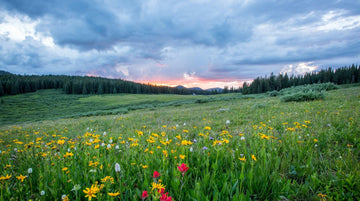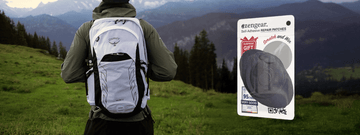Essential Spring Camping Tips: Make the Most of Your Outdoor Adventure
by Emily Jannet on Mar 25, 2024
As the chill of winter gives way to the warmth of spring, many outdoor enthusiasts are itching to hit the trails and spend a few nights under the stars. Spring camping offers the perfect opportunity to embrace nature's awakening while escaping the confines of daily life. However, spring camping comes with its own set of challenges and considerations. Whether you're a seasoned camper or new to the outdoor scene, these essential spring camping tips will help ensure a safe, enjoyable, and memorable experience.
-
Check the Weather Forecast
Spring weather can be unpredictable, with sudden rain showers or even late snowfall in some regions. Before heading out, check the weather forecast for your camping destination and pack accordingly. Bring layers of clothing to stay warm during chilly nights and prepare for rain by packing waterproof gear and extra tarps for your tent.
-
Choose the Right Campsite
When selecting a campsite, consider its elevation and exposure to wind. In early spring, lower elevations may be warmer, but they can also be prone to flooding or muddy conditions. Higher elevations may still have remnants of snow, so be prepared for colder temperatures. Look for a campsite with natural windbreaks like trees or rocks to provide shelter from strong gusts.
-
Pack Insulation
Even as the days grow warmer, spring nights can still be cold, especially in mountainous areas. Pack insulated sleeping pads and sleeping bags rated for colder temperatures to ensure a comfortable night's sleep. Additionally, bring extra blankets or clothing layers to add warmth if needed.
-
Mind the Bugs
Springtime brings a resurgence of insects, including mosquitoes, ticks, and flies. Protect yourself by wearing insect repellent, long-sleeved clothing, and pants tucked into socks to prevent ticks from latching onto your skin. Consider bringing a mosquito net to drape over your sleeping area for added protection, especially if you're camping near water sources.
-
Stay Hydrated
With warmer daytime temperatures, it's easy to become dehydrated while hiking or engaging in outdoor activities. Carry an ample supply of water and drink regularly throughout the day to stay hydrated. Consider bringing a water filtration system or purification tablets to safely refill your water bottles from streams or lakes.
-
Be Fire Safe
While campfires can provide warmth and ambiance, springtime poses an increased risk of wildfires due to dry vegetation and gusty winds. Check for any fire restrictions in your camping area and adhere to them strictly. If campfires are permitted, use established fire rings or pits, keep a bucket of water nearby for extinguishing flames, and never leave a fire unattended.
-
Prepare for Wet Conditions
Spring showers are common, so be prepared for wet weather by packing waterproof gear and clothing. Keep matches, lighters, and fire starters in waterproof containers to ensure you can still start a fire even if they get wet. Set up your tent on high ground to avoid pooling water, and consider bringing a ground tarp or footprint to protect the tent floor from moisture.
-
Plan Your Meals
Spring camping presents an opportunity to enjoy fresh, seasonal ingredients. Plan your meals ahead of time and pack lightweight, non-perishable foods that are easy to prepare. Consider bringing a portable stove or campfire grill for cooking, and don't forget to pack utensils, pots, and pans. Remember to store food securely to prevent attracting wildlife to your campsite.
-
Stay Safe Around Wildlife
Spring is a time of increased wildlife activity as animals emerge from hibernation or seek out food sources. Be mindful of your surroundings and properly store food and trash to avoid attracting bears, raccoons, or other animals to your campsite. Familiarize yourself with local wildlife and follow proper protocols for encounters, such as making noise to alert animals of your presence and keeping a safe distance.
-
Leave No Trace
As you enjoy the beauty of nature, remember to leave no trace of your visit behind. Pack out all trash, including food wrappers, and dispose of it properly when you return home. Minimize your impact on the environment by staying on designated trails, respecting wildlife and vegetation, and avoiding unnecessary disturbance to natural habitats.
Spring camping offers a chance to reconnect with nature and rejuvenate the mind, body, and spirit. By following these essential tips, you can make the most of your outdoor adventure while staying safe, comfortable, and environmentally conscious. So grab your gear, embrace the changing seasons, and embark on a spring camping trip to remember!





